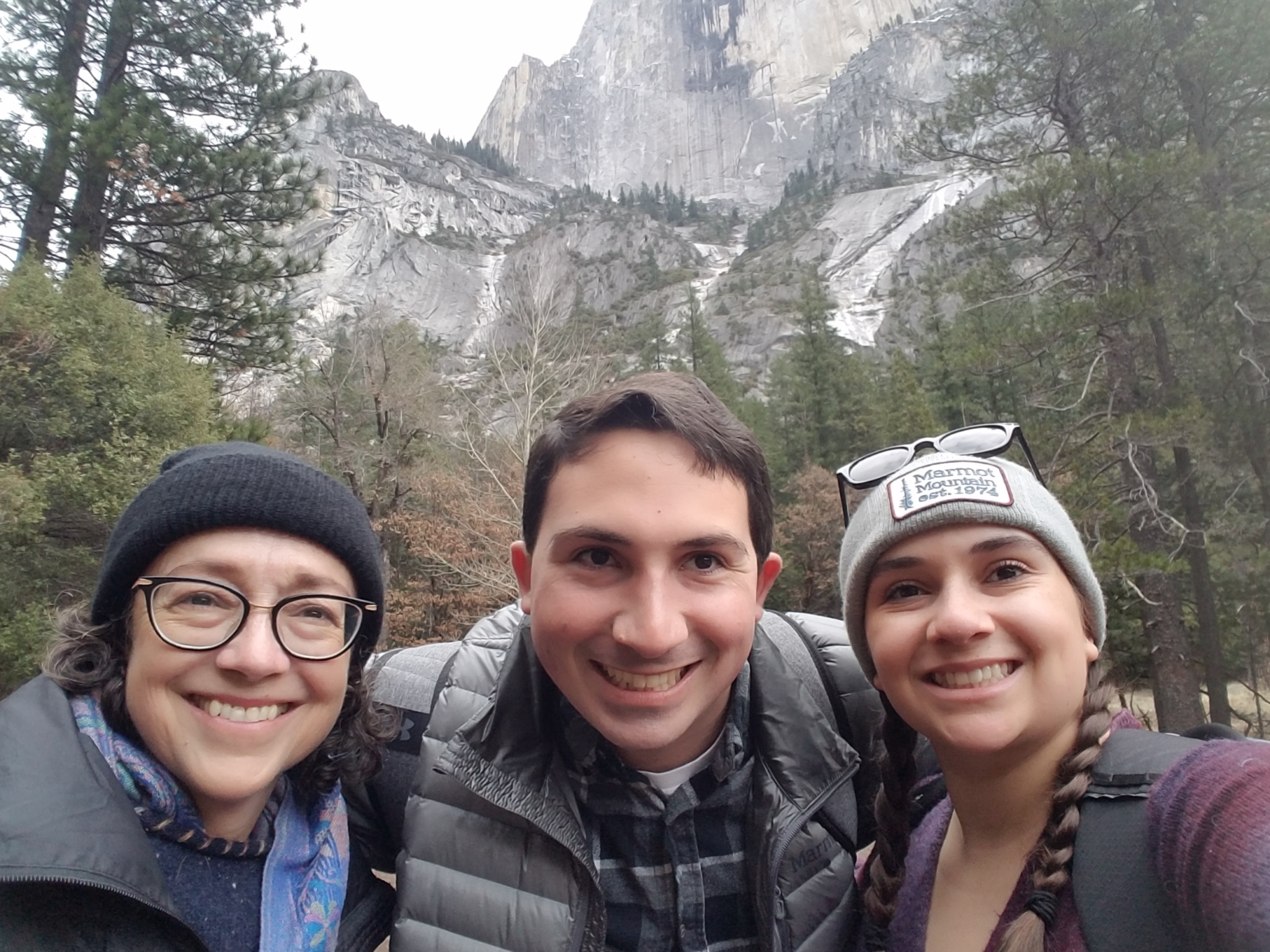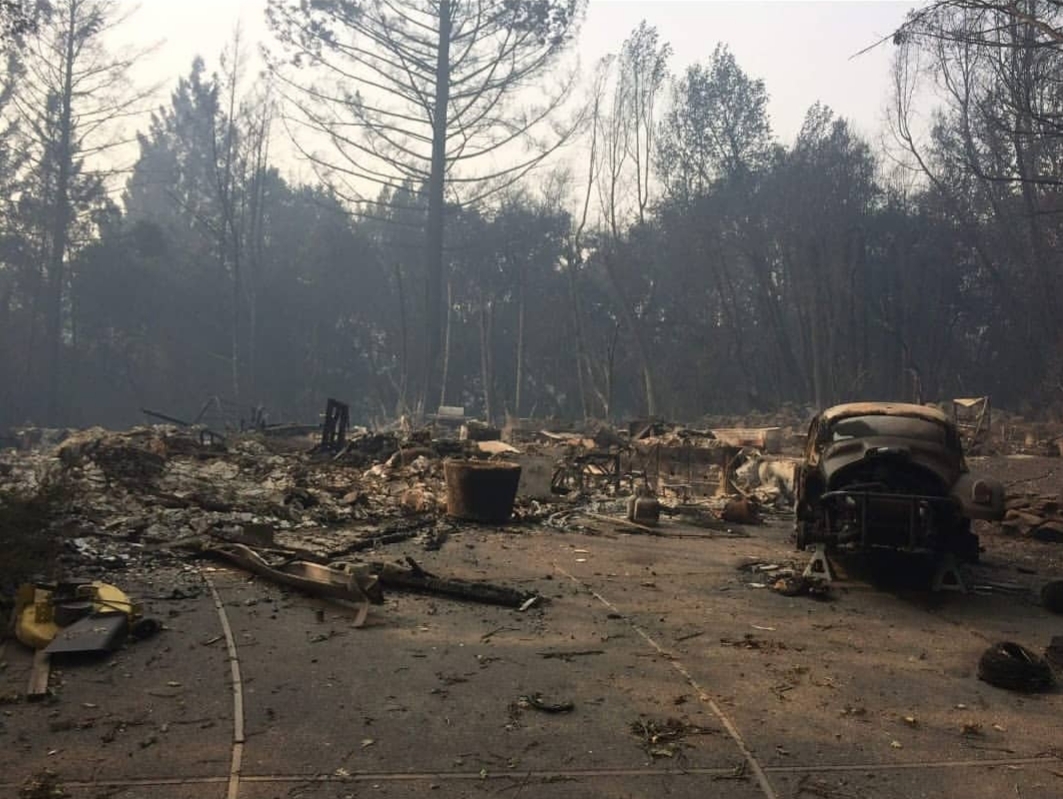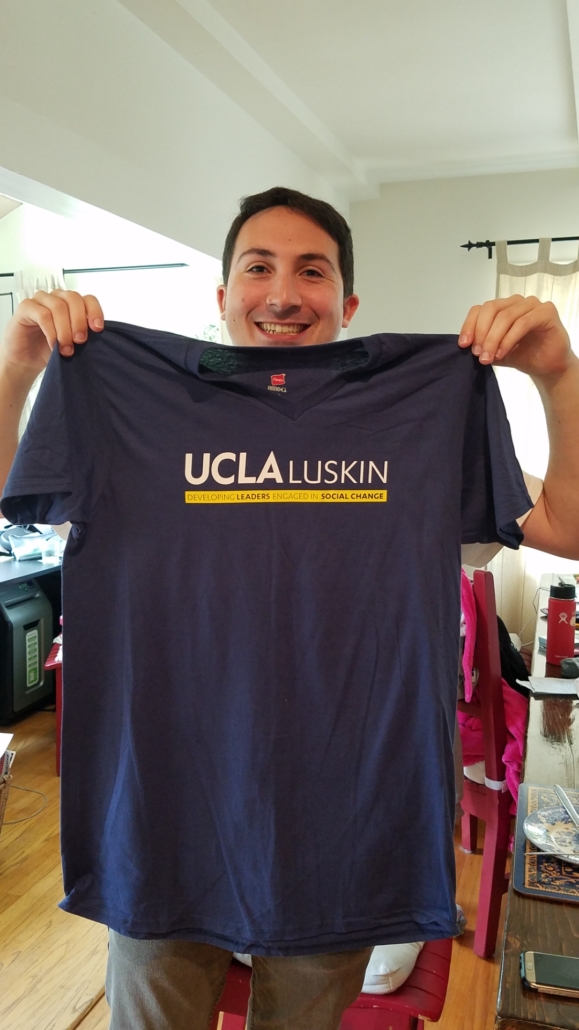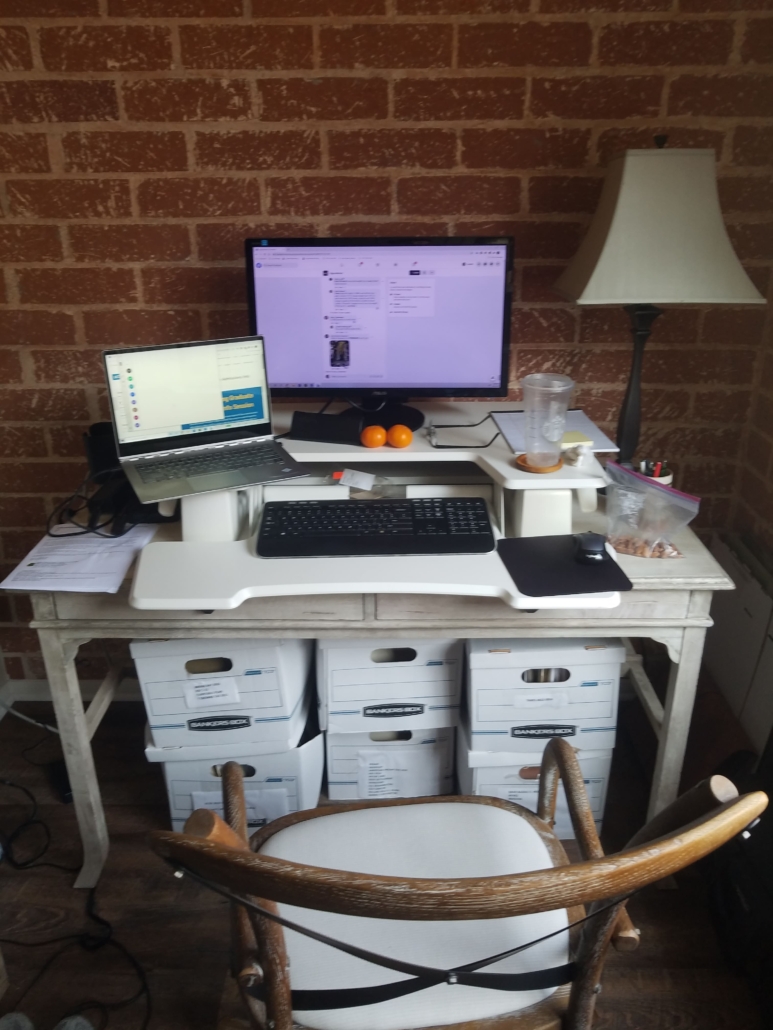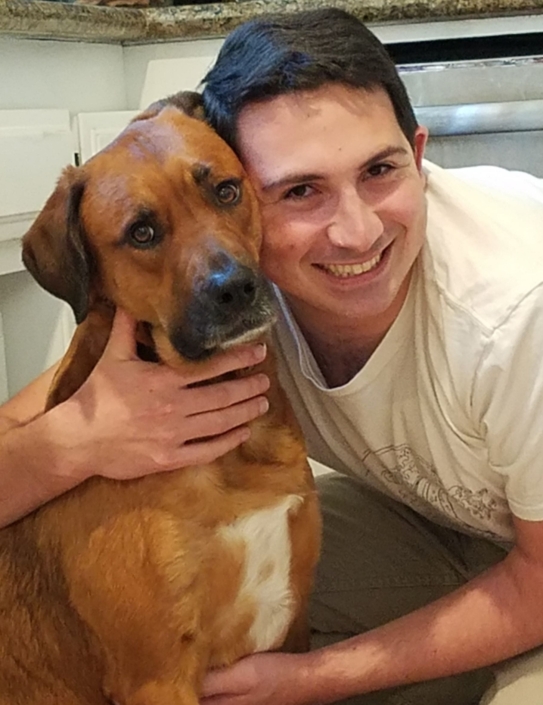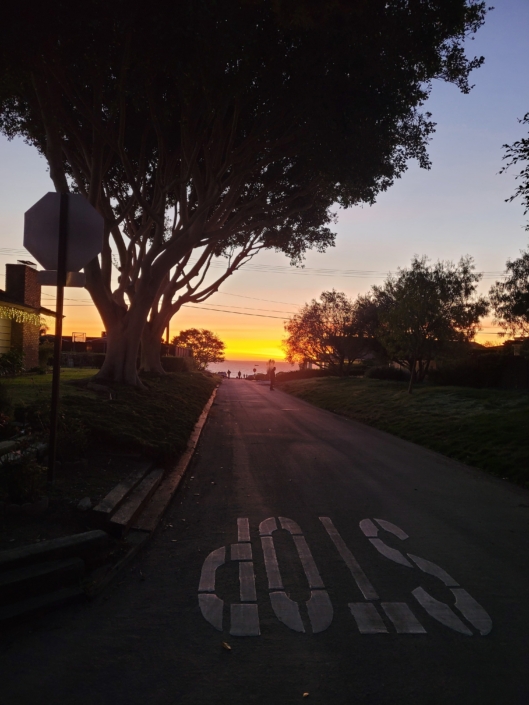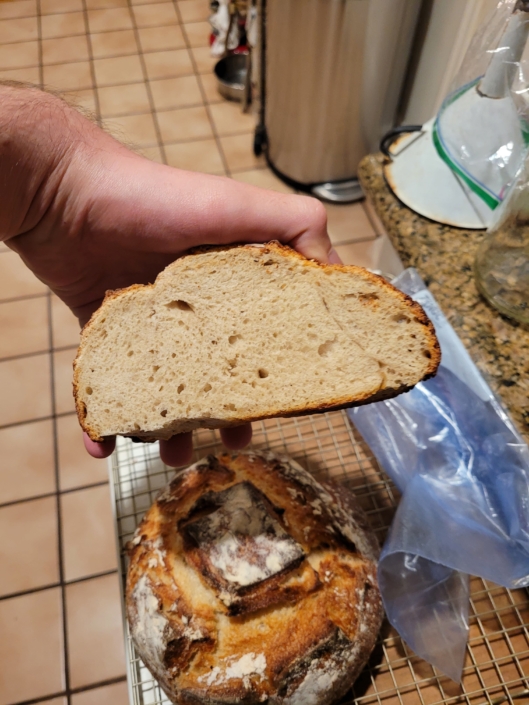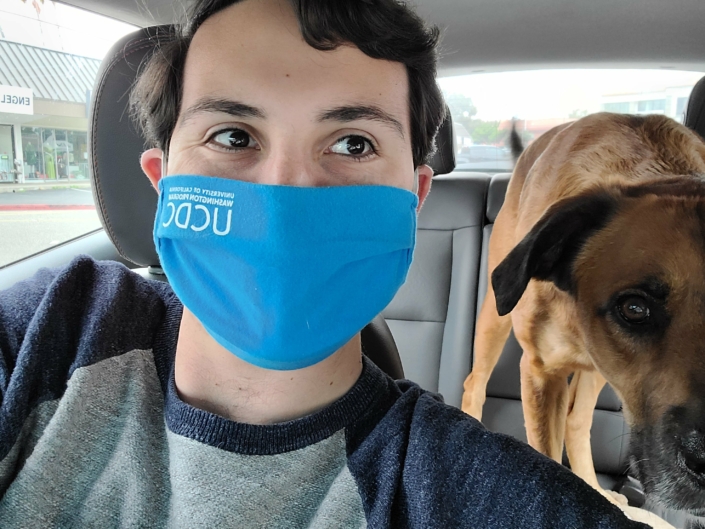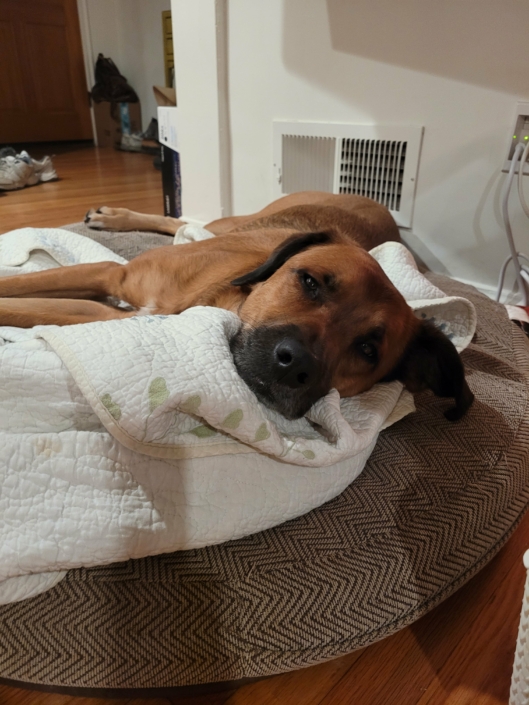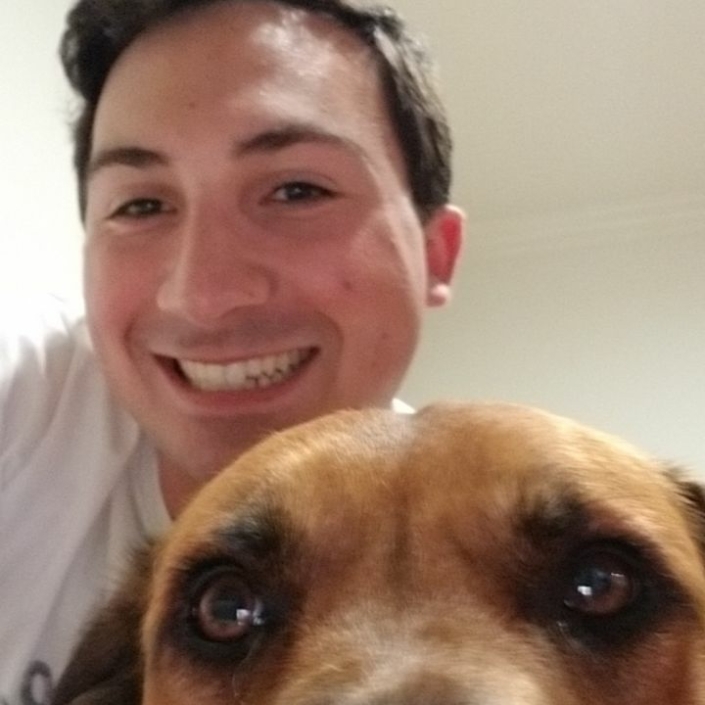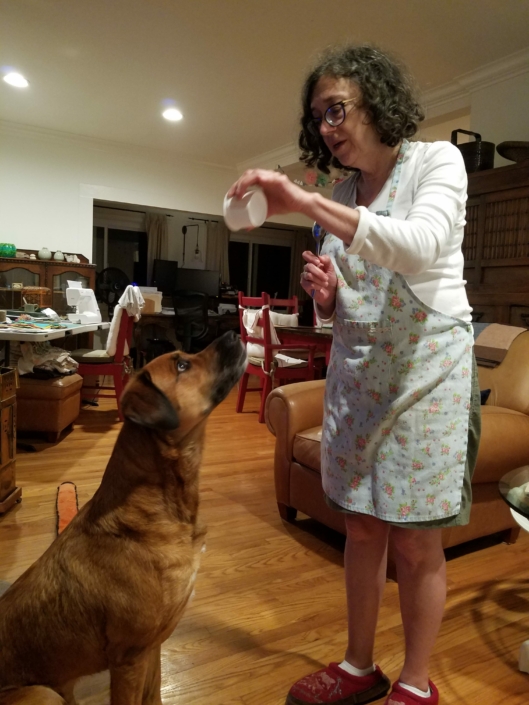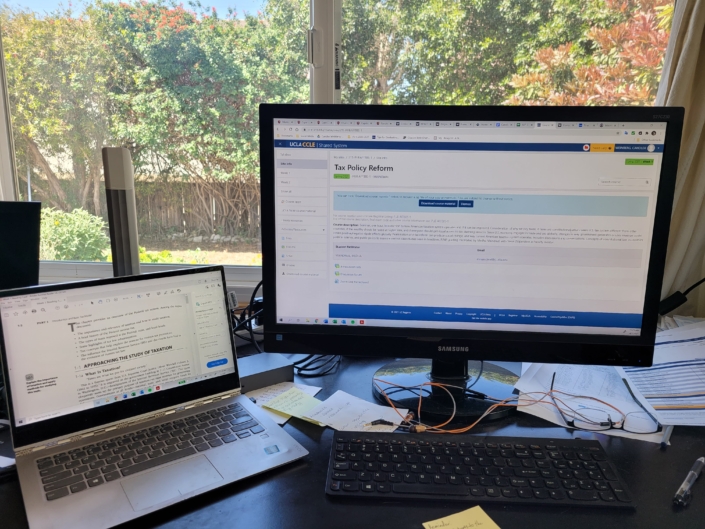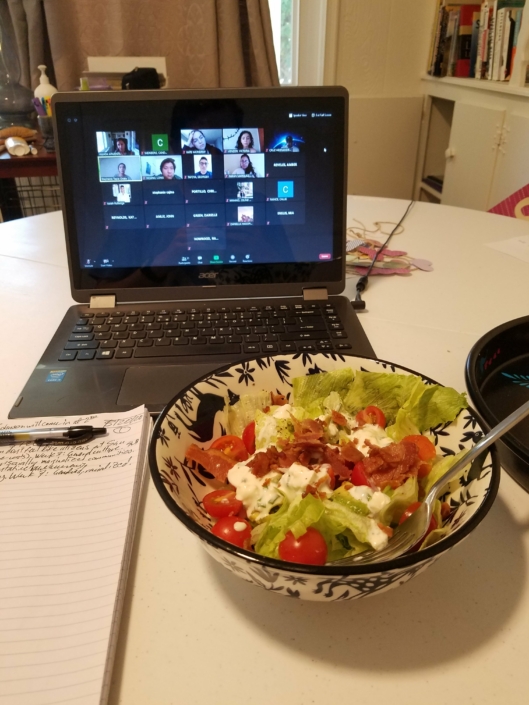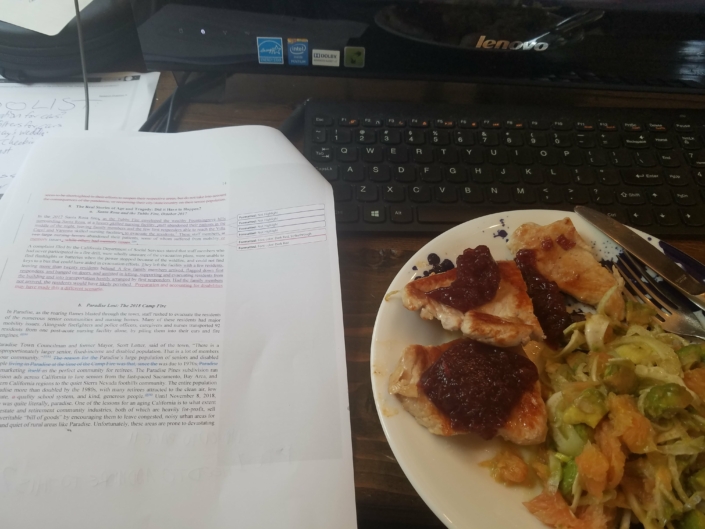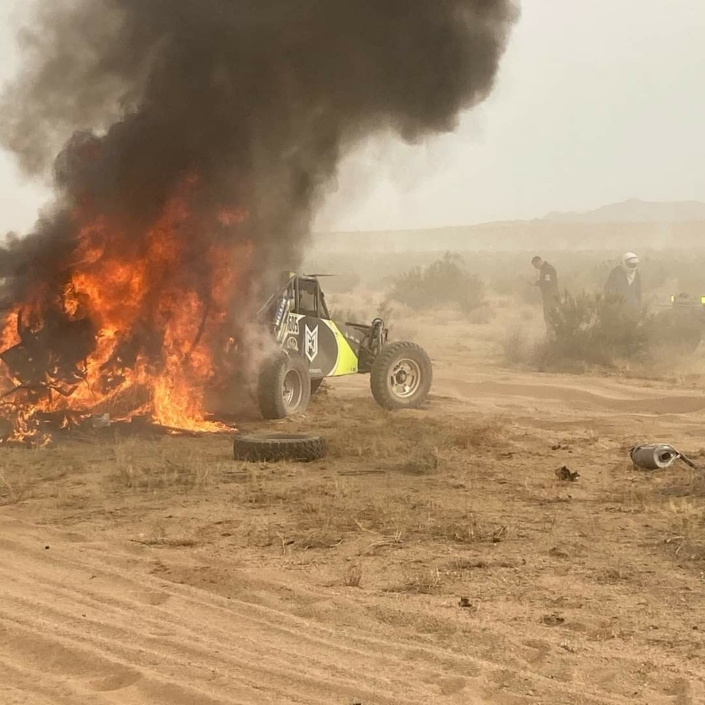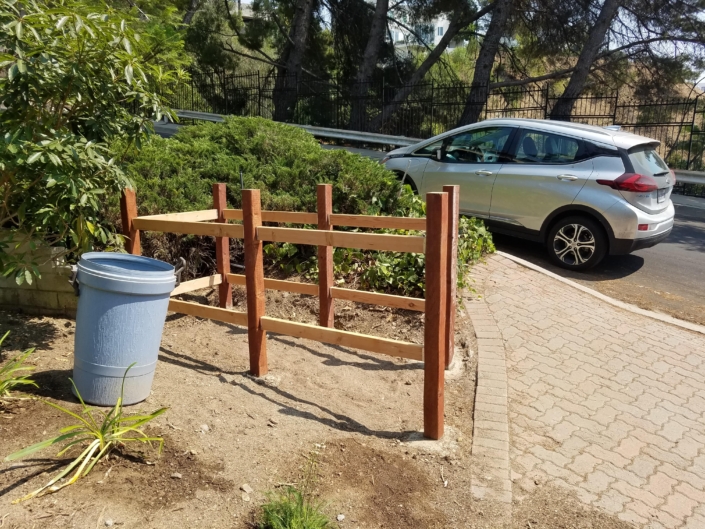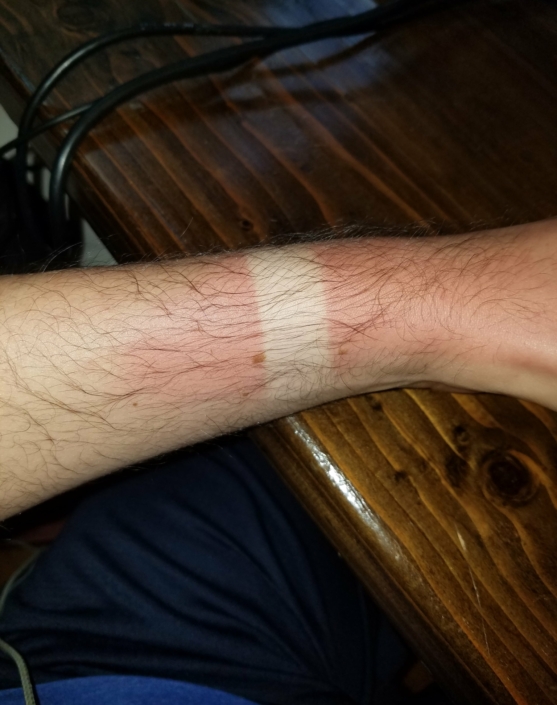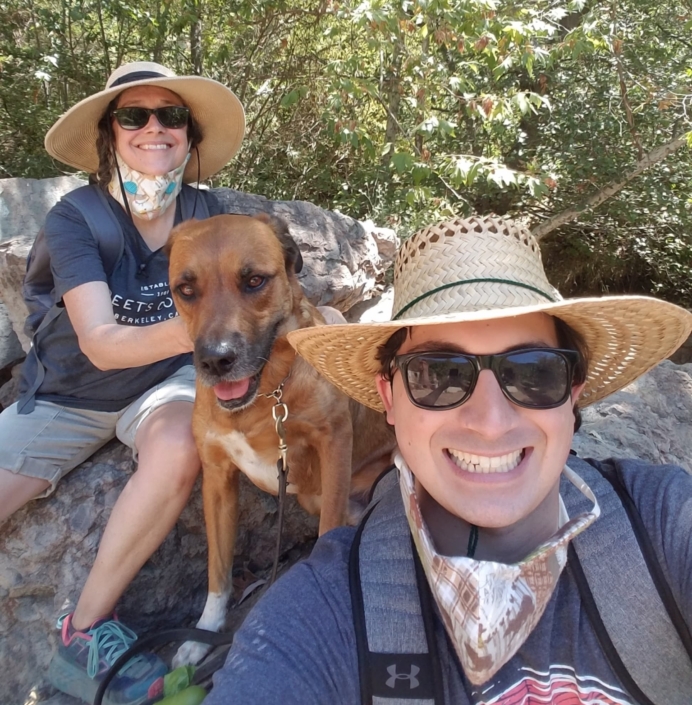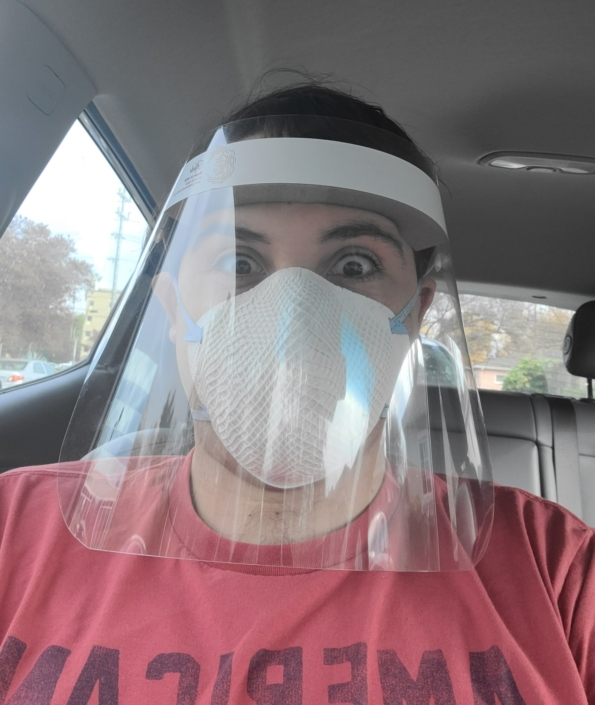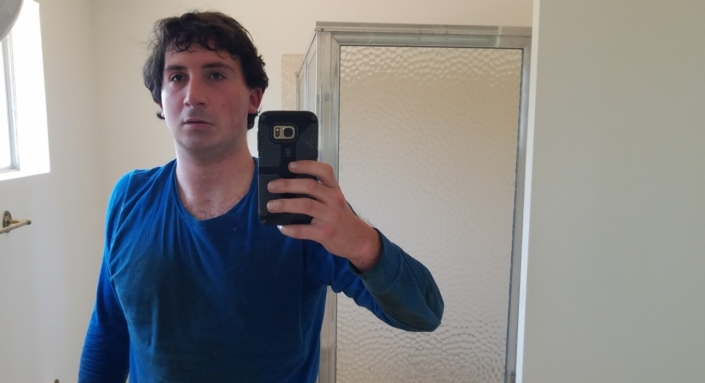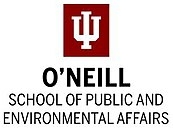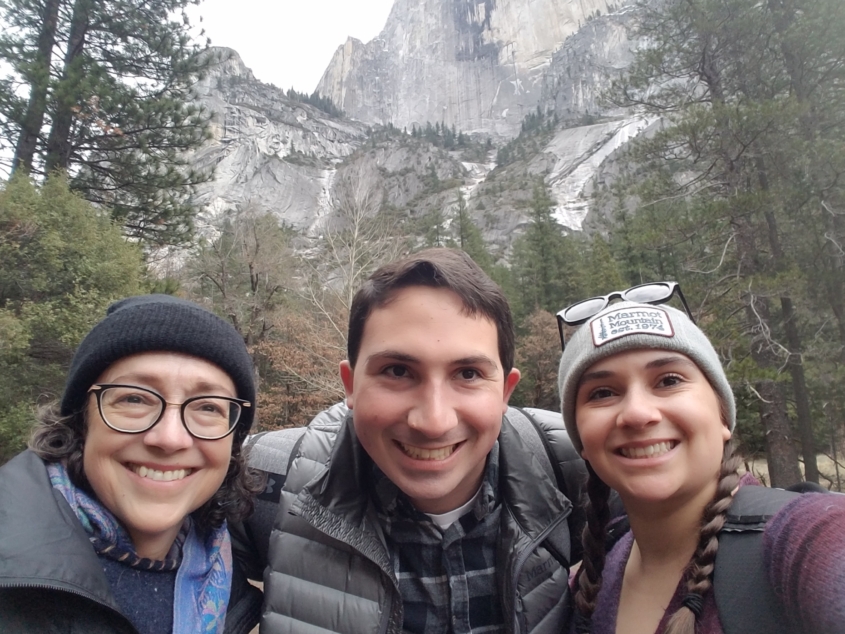
Candler Weinberg, center, enjoying the great outdoors in December 2019 at Yosemite with his mother, Sherry, and his sister, Coco.
Losing his home to wildfire prompted a change in direction for a young man whose love for community service led him toward UCLA Luskin
reporting and visual direction by Hon Hoang
photography and captions by Candler Weinberg
The First Public Affairs Graduates: One in a series of profiles
eople usually perceive that their journeys in life will lead straight to a destination. But then they encounter unforeseen circumstances or experience unexpected hardships and new paths emerge. That was the case for Candler Weinberg, who says the loss of his family’s Sonoma County home in a vast and deadly wildfire helped reroute his career path toward public affairs.
Weinberg is originally from Santa Rosa, California, where he attended community college as a pre-nursing/public health major. Then a firestorm swept through wine country.
“After losing everything but the clothes on my back to one of California’s most destructive wildfires in October 2017, I realized that I could make a far more impactful change working in emergency management rather than public health nursing,” Weinberg said.
‘I decided to help prepare and mitigate for, and recover from, natural disasters’
His family was forced to relocate to the Los Angeles area. Soon after, Weinberg was attending classes at El Camino College in Torrance when he determined that his interests related more to the broad policy issues that affect communities of people rather than to the health of individuals. He applied to UCLA and was accepted in 2019 as a transfer student in the new public affairs major.
Weinberg knows firsthand the effects of a natural disaster. By channeling that knowledge and combining it with a love for community service and research, he hopes to influence policy that will enable entire communities to better mitigate the impacts of future disasters.
“Wildfires are California’s new normal,” he said. “But more importantly, natural disasters are the new normal for the world. Knowing this, coupled with my drive to serve communities, I decided to help prepare and mitigate for, and recover from, natural disasters.”
Weinberg arrived at UCLA as one of the first students to be accepted into the new undergraduate public affairs major at the Luskin School, joining a cohort nicknamed the Trailblazers.
“I chose to be a Luskin Trailblazer because of the small size of the program,” said Weinberg, noting that it presented an ideal opportunity for him to pursue his research interests while making close connections with other students and professors.
‘it became clear to me that marginalized, low-income communities suffer from natural disasters…’
For his required capstone project, Weinberg took advantage of opportunities presented by his UCLA Luskin internship with the Forest Service’s Office of Emergency Medical Services. And Weinberg incorporated knowledge he had gained the hard way as a victim of wildfire.
“After the fire, it became clear to me that marginalized, low-income communities suffer from natural disasters at vastly disproportionate rates compared to other populations,” he said.
His capstone project involved data analysis of incidents involving the use of emergency medical services in U.S. Forest Service lands from 2019-20. He sought to provide Forest Service leaders with a big-picture perspective on the use of their resources and the impacts of their decisions on both patient care and employees.
One set of data led him to analyze 30 patient care reports. Another data set focused on wildland firefighters and employees who were injured or became ill in the line of duty.
“Wildland firefighting is an ostensibly dangerous occupation with many occupational hazards, and as such, having a clear idea of illness and injury trends will help [fire officials] and other stakeholders best prepare for, respond to, mitigate and learn from these incidents,” Weinberg said.
‘I have the capacity, capability, knowledge and desire to serve communities…’
As a senior at UCLA, Weinberg found himself again adapting to changing circumstances when the COVID-19 pandemic upended everyone’s lives and forced him — and his professors — to make major adjustments. Work, research and learning all had to be done remotely.
He credits Professor Fernando Torres-Gil with helping direct his research, calling it a “truly amazing experience.”
Next up for Weinberg will be pursuit of a master’s degree in public affairs at Indiana University in Bloomington, where he plans a concentration in environmental policy and natural resource management.
As his undergraduate commencement neared, Weinberg reflected on the sometimes winding path of his journey so far and expressed confidence in how well the Luskin School prepared him for what lies ahead.
“I have the capacity, capability, knowledge and desire to serve communities and to further myself through education and experiential learning” to achieve those goals.
